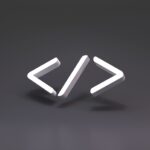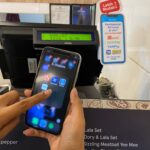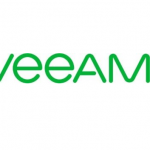As we slowly ease into our daily routine after the MCO lifts – businesses are still recovering from the pandemic’s impact. We have seen companies almost in all sectors have been forced to adapt to the new norm in a short period – some turned to technology, others innovated to accelerate into new markets.
So what does it mean to adapt to the new norm?
One of the major concerns include the health and safety of employees. In response to this, for example Amazon recently deployed an AI-enabled tech to maintain social distancing of its employees at warehouses.
The ‘Distance Assistance’ system has an AI-enable camera to track employees’ movement and provide feedback in real-time.
The camera is able to track how closely employees are walking next to each other and alerts the system if they get closer than six feet from each other. This system also helps to identify high traffic zones within the warehouse.
Similarly, ProGlove a German-based barcode scanning specialist company has integrated proximity sensors to its current products in favour of their employees’ safety and well-being to maintain social distancing.
This company has upgraded its wearable barcode scanner (that rests on employee’s hand) to measure proximity among front line workers in production, distribution warehouses, and other locations, hence alerting via audio, LED light, or vibration when coming in close proximity.
Healthcare on the other hand is one of the sectors that has gained the most from technological development amid the pandemic. From Artificial Intelligence (AI), Machine Learning (ML), and IoT, these are useful technology in revolutionising the healthcare industry.
IoT enabled systems are beneficial for monitoring of COVID-19 patients. Companies like VivaLNK developed a wearable sensor to detect patient’s temperature continuously and alert of any drastic changes. This helps limit the physical contact between medical professionals and patients.
AI capabilities to process information via machine learning algorithms have helped reduced administrative burden in the healthcare industry – Vidado, an AI platform lets handwritten medical documents be digitised in near real-time, relieving medical professionals from administration burden of keying notes manually.
Also, as we slowly transition into the new norm, routine visits will eventually become virtual ones. The evolution of telehealth and telemedicine will be the next big thing. The pandemic has forced medical professionals to assimilate to online practices and it has been received successfully.
How long will this last? We don’t know. But as the world carefully prepares to adapt to the new normal, businesses have to become more agile.








